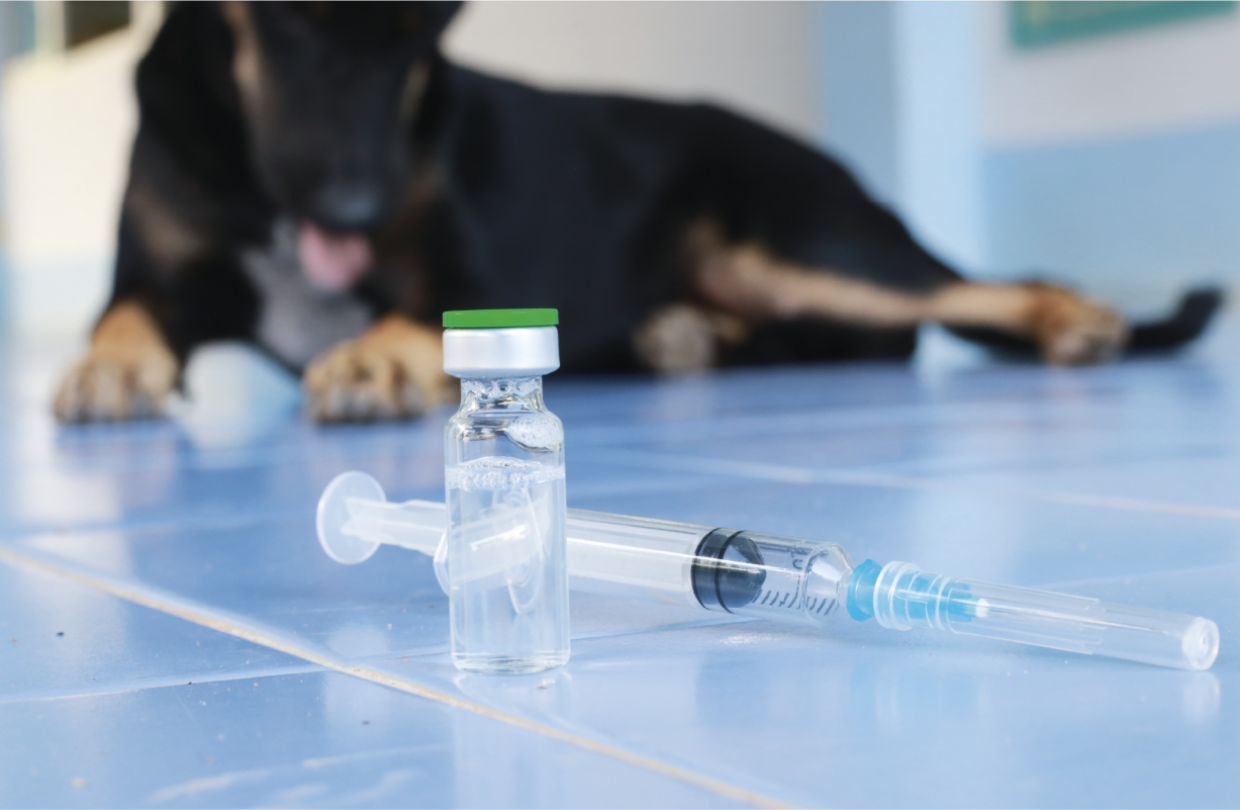Rabies is a terrible disease. It is almost always fatal, and despite highly effective vaccines, it has still not been possible to contain the disease on many continents. On the Indian subcontinent in particular, rabies occurs in numerous urban contexts, transmitted by dogs that live together with humans or even roam the area without a master.
AN MMH INSIDE REPORT: RABIES PREVENTION IN NEPAL
A GOOD PROJECT PLAN... AND STAYING POWER
WHAT IF… WE ABOLISH RABIES?
What if it were possible to permanently reduce the threat to life posed by the high number of rabies cases in Nepal? These are questions that Dr. Isabelle Buschulte, Global Quality Medicine physician at Boehringer Ingelheim, and Dr. Fredrik Gruenenfelder, Global Pharmacovigilance Boehringer veterinarian, asked themselves again and again in joint discussions. Encouraged by the experiences of other colleagues and regular reports from the Making More Health publications, the two of them made the decision to turn an ambitious project idea of theirs into reality: to set up a dog vaccination program in Nepal, a country severely affected by rabies, while systematically educating the population about the disease and prevention measures.
“That was definitely the easiest part of the whole trip,” Isabelle Buschulte recalls with a laugh. “After that, we had to realize that to improve the world, you need all kinds of skills that you don't learn at university or in your everyday work. But with each different section mastered, our confidence grew and also our pride in what we had achieved."
Buschulte and Gruenenfelder were starting almost from scratch in 2016. Although they had contacts with the university in Nepal, there was no other infrastructure they could build on. The first phase of the project was about establishing connections: first with Manuela Pastore from Making More Health at Boehringer Ingelheim, who assured them of support, with colleagues from the animal health department, who offered to provide their knowledge, and with potential project supporters in Nepal. By fall 2017, the project plan was in place and later presented for the first time at the MMH Convention in October 2017. The next step was a trip to Nepal, where further valuable contacts could be established: with Prof. Mukti Shrestha, one of the most renowned veterinarians in Nepal and President of the Veterinary Practitioner's Association Nepal (VPAN), with HICAST, the Himalayan College of Agricultural Sciences & Technology in Kathmandu, and, in the end, with the Nepalese government.
“Without the knowledge of local and country-specific conditions and laws, you cannot get very far. Contacts and establishing a stable local network were critical to our success,” states Isabell Buschulte in retrospect. "Within the company itself, we also received enormous support from colleagues from all areas – from the MMH team and our superiors, to Controlling and Global Communications, to interested colleagues who simply cheered us on time and again.”
After their return from Nepal, Buschulte and Gruenenfelder submitted the project to the MMH Competition in February 2018. In May 2018, they received the “MMH Support Bag” –official support from the MMH program – and a mentor who would stand by them during all further phases. In the summer of 2018, it was finally time for implementation: they wanted to start in Lalitpur, a small town in the Kathmandu region. From the beginning, the challenge was to make the program sustainable, i.e. not just to make a splash at the beginning, but to ensure funds would be acquired permanently, vaccines and vaccination accessories could be procured, and, above all, organizational measures would be taken to catch dogs on site. The team is currently also looking into the possibility of founding an association to keep raising funds.
Of course, the team led by Buschulte and Gruenenfelder is constantly confronted by obstacles along the way: In Nepal, people have a fundamentally different understanding of time. Colleagues on the ground cancel appointments, it is not easy to find the right contact persons, internal funding from time to time is slow, and sometimes there is simply a lack of in-house expertise, e.g. in animal health. “In the end, what has counted is a good project plan and staying power. Despite many obstacles, we have made a little progress every day. And we have been rewarded for it – with plenty of fun and the satisfying feeling of having set up something helpful together with others!”

WHAT TO EXPECT IN THE FUTURE
Now, after three years, the two initiators feel that they have put the rabies program on the right track. The field of operations has been steadily expanded – from the village of Lalitpur to the entire Kathmandu Valley. The Nepalese government has also decided to join the program and thus broaden its scope. Even here, though, the commitment does not end. The plan is to build on the experience gained to develop and scale the entire project in a global context. On the one hand, the aim is to think of human pharma and animal health as "One Health" in the long term, i.e. as an integrated field of activity, in order to find synergies and to be able to offer completely new medical solutions for communities worldwide in the future. At the same time, the two initiators are driven by the desire to use their knowledge in other regions of the world. After all, rabies is also a massive problem in Latin America and Africa. In this new phase, the MMH Connect platform has arrived just in time: “From now on, it will be much easier for us to exchange information with the whole world,” states Buschulte and Gruenenfelder happily. “We don't regret a single minute we've spent on the project so far. But we have no objection at all to accelerating things in the future. We are very excited about the launch of the platform and will immediately use it for our project.”


